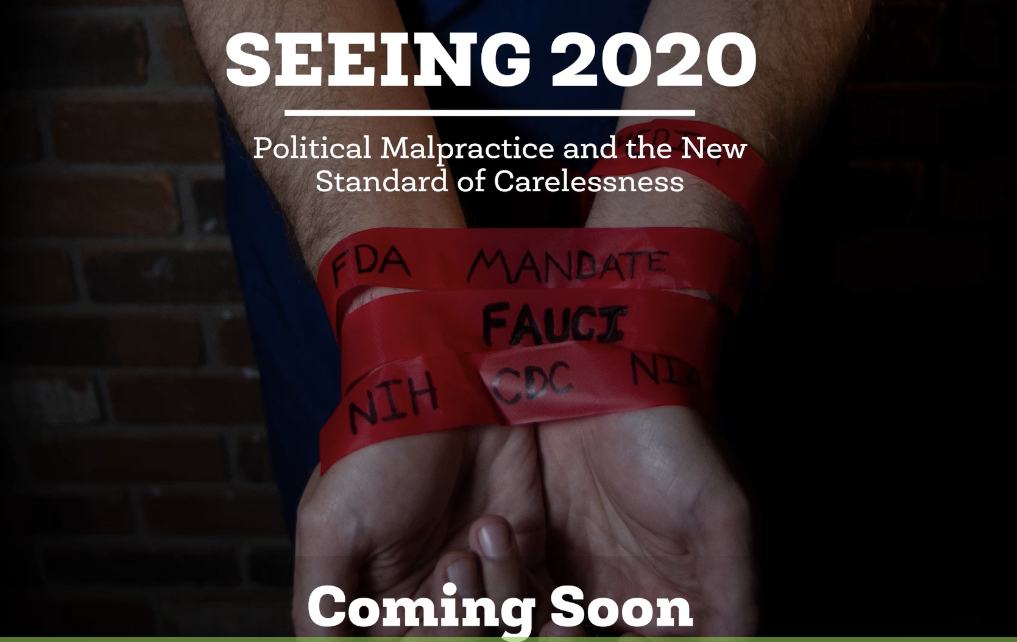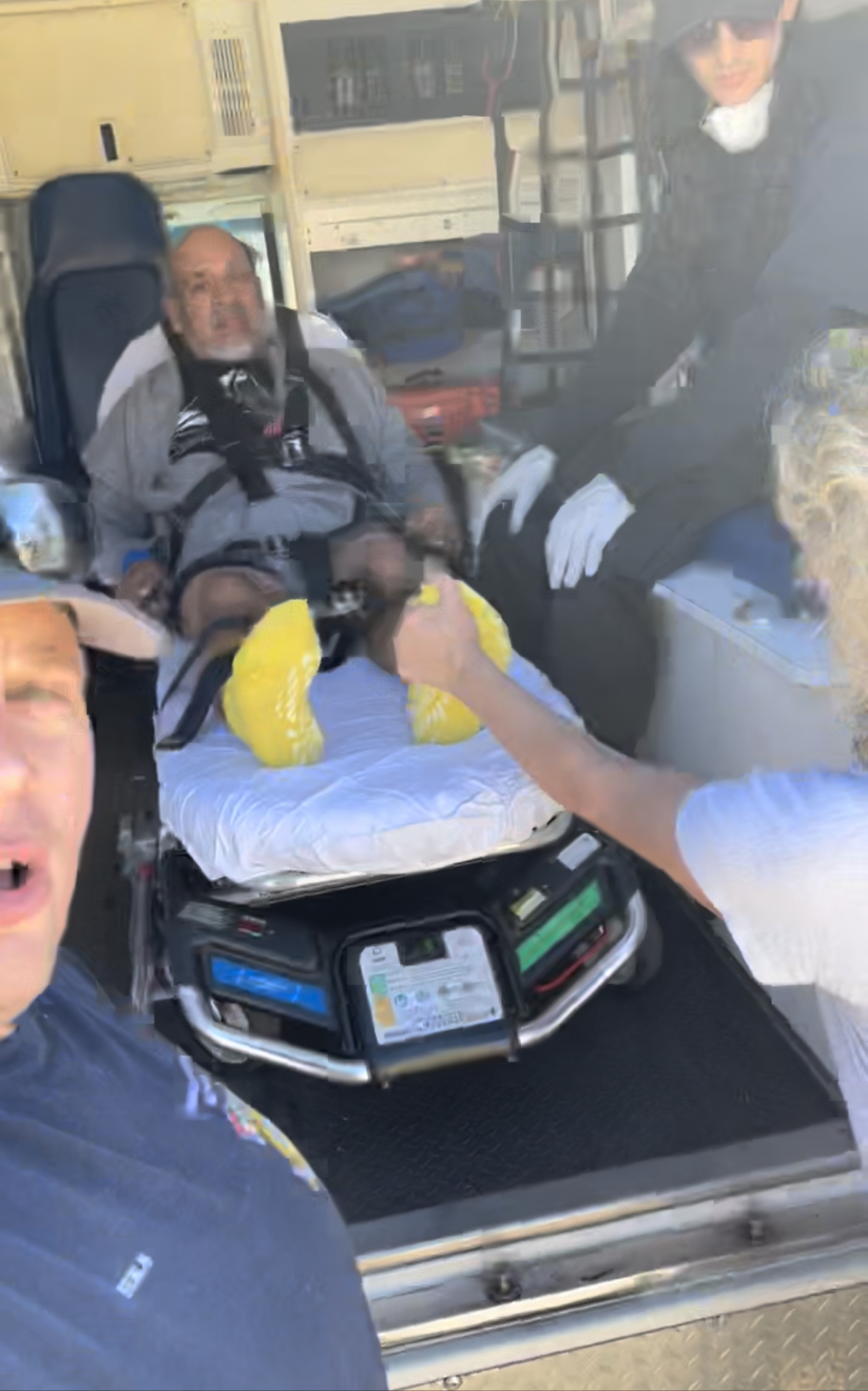
Sadly, the last couple years have proved that hospital policy has restricted many doctors’ abilities to provide adequate therapeutics for patients. If you find yourself in a situation where your loved one is hospitalized, here is an advocacy guide using the acronym P A T I E N T.
P is for print. Each person should print out their state’s codified patient rights and responsibilities, as well as the hospital Patient Bill of Rights and Bylaws. The hospital’s patient rights policy will likely be modeled after the state’s policies. Family members can make reasonable requests of the staff for their hospitalized family member, while communicating how these requests fulfill a patient’s rights (ie. the right to pray with another person, or the right to have an auxiliary aide to assist a disabled person, etc.). If you are incorporating these rights, it will make it difficult for providers to argue their way out of their own policies. If you’re already in the hospital and haven’t had a chance to do this yet, the policy should be posted somewhere, or you can ask to see a copy.
Another “P” term is Presence- Patients have better success when their loved ones are present. If the hospital is refusing to allow visitors, and the patient has a disability, seek out requesting a reasonable accommodation for a support person.
There are several federal disability civil rights laws that apply to hospitals – Title III of the Americans with Disabilities Act (ADA), Section 504 of the Rehabilitation Act (RA), and Section 1557 of the Patient Protection and Affordable Care Act (ACA).
In short, if a patient with a cognitive or mental health disability needs a supporter or communicator to assist with communication and health care treatment and/or to provide emotional support, the hospital must allow it as a reasonable modification of its visitation policy or as an auxiliary aide or service for effective communication. While it varies with each state and hospital, most should have a disabled support person policy, and the keyword to search for in the hospital policy is “support person.”
Explain that you are requesting a reasonable accommodation and/or an auxiliary aide or service under the ADA, RA, and ACA. Be prepared to explain why the patient needs an auxiliary aide or service (such an interpreter) or a reasonable modification (such as a supporter or personal care assistant). Check out this sample template.
ADA protections don’t necessarily require a previous disability or a doctor’s note- simply that the person is currently disabled per the ADA definition, and requests (in writing!) a reasonable support person. Defined by the ADA, a disability is a physical or mental impairment that substantially limits one or more major life activities, such as caring for oneself, performing manual tasks, walking, seeing, hearing, speaking, breathing, learning, working, etc., … A person who has a history or record of such an impairment, or a person who is perceived by others as having such an impairment.
The ADA, RA, and ACA are not suspended during the COVID-19 pandemic. In fact, the United States Department of Health and Human Services’ Office for Civil Rights, which oversees implementation of those statutes by hospitals, issued a statement specifically reminding hospitals that they must “keep in mind their obligations under laws and regulations that prohibit discrimination on the basis of … disability … in HHS-funded programs” and that the federal disability rights laws “remain in effect” even during the COVID-19 pandemic.
Another “P” thought is “presence.” Too often hospitals play the capacity of the patient to the hospital’s best interest. For example, a patient has an Advanced Directive which states, “No Remdesivir!” Patient is given morphine at a hospital and the patient’s family is told the patient wants Remdesivir. How will this play out? When the Healthcare POA says no, the doctor says, “the patient is not incapacitated thus the patient can consent to Remdesivir, and I can’t take your POA opinion since I’m not deeming the patient incapacitated.” Therefore, a trusted healthcare proxy, regardless of whether a patient is deemed incapacitated or not is extremely helpful. (Please note however, that in most cases order to litigate on behalf of a patient, the patient needs to be deemed incapacitated and have a Power of Attorney appointed by a court to litigate. Unless there are other remedies in a court of equity…)
A is for Advanced Directives. It is very important to have your affairs in order before you go to a hospital. There are many types of Advance Directives, but you must establish your Medical Power of Attorney (POA). Who will you designate to make decisions on your behalf if you cannot do so? This can be accomplished on your own by using the forms here. Designating a person as a ‘healthcare proxy’ is another alternative, which gives the proxy the authority to make decisions on your behalf, regardless of a patient’s decision-making capacity. The advantages/disadvantages of Medical Power of Attorney vs. healthcare proxy need to be carefully considered for each individual. Each state has their own laws about witnesses and notaries. There are many online notary services you can use.
A healthcare advance directive is a form that allows you to document your healthcare wishes in advance, for a time you cannot make your own healthcare decisions. If you know there are specific things you would like or would refuse while hospitalized, (e.g. Remdesivir and/or a ventilator, mind-altering medications, etc.), list your wishes in your Healthcare Advance Directive, you can find an example here.
T is for typing up a pre-hospitalization medication list which includes your immune strengthening supplements: high dose vit D, zinc, magnesium, etc. As well as interventional preventive care including the use of high concentration chlorhexidine coatings for the mouth. (Dr. Tenenbaum) Upon signing your admission forms, your home supplements and interventional preventative care can be added as a condition of your being treated in the hospital, as these are a part of your daily nutrition requirements. The hospital will not give you any medications brought from home, and they won’t give you anything not on a medication list unless they’re prescribing it. If you show them what you’re already taking, they’re far more likely to give it to you.
I is for initiating the chain of command. Every type of medical center (hospital, long term care unit, nursing home, etc.) must have a ‘physician of record’ assigned to every patient. This person is often referred to as the ‘attending physician’. Other sub-specialists may be consulted for their advice, but they are not usually the physician who is coordinating a person’s care. They may have residents and interns under their authority, but they are ultimately responsible for the care of each person assigned to them. Nurse practitioners and physician assistants also work with them. Most hospitals contract with large groups of ‘hospitalists’ who care for inpatients. Within the ICU setting, the physician in charge of patients may be referred to as an ‘intensivist’. The physician of record has an obligation to see his/her patients every day. You must ask the full name of the admitting physician of record prior to being admitted to a hospital. This information is absolutely vital! The hospital would not admit a patient without a physician admitting them. Without this information, advocates will be limited on communication ability and if needed, future legal recourse.
The hospital nursing staff usually has its own hierarchy: a chief nursing officer, a nurse unit manager, a charge nurse (for a given 8 or 12 hour shift) and a staff nurse who may work with patient care technicians. will have some type of chain of command. For example; bedside nurse, charge nurse, patient relations, nurse unit manager, hospital administration or chief nursing officer. The people helping at the lobby front desk are typically volunteers.
A lot of advocating has to do with attitude and approach. You want to be assertive but not aggressive, but do not be afraid to be, persistent in presenting the needs of your loved one. This is your loved one! And these are services the hospital and patient have contracted for! Empathize with their situation so they’ll empathize with yours. Compassion goes a long way, and your approach makes a huge difference. Some say it feels like walking on eggshells and sort of like negotiating a hostage situation. If time goes on and you’re not being heard, you can escalate through the chain of command. It’s best to do this in writing and to copy everyone involved. If you have the person’s first and last name, as well as any employees’ email address you can put the two together to decipher how to email the care team. The email algorithms are almost always the same for all employees of a particular hospital. For example, FirstName.LastName@BannerHealth.com works with all hospital employees if you have their first and last name.
E is for enroll, and this is a job to do before a loved one is in the hospital. Enrolling in electronic medical records is important beforehand because a patient can authorize healthcare proxy access and viewing permission and still be HIPPA compliant. If this is not feasible, print and sign the record request form listed on the hospital website and grant your healthcare proxy access, and give a copy of this form to your advocate.
It is important to be able to see in almost real time what the patient is being tested for, what medications they’re being given, how much hydration/nutrition they’ve had, etc. It is very important to see the record with your own eyes, this is not the same as simply listening to someone read off medications to you over the phone. With access to this information, you will also be able to send the information to another doctor or get a second opinion easily. Patients have a right to a second opinion!
If the patient is not lucid and you don’t have a healthcare power of attorney, the access to records is difficult to obtain/get. Yet you will need this for second opinions and the ability for future litigation. If you haven’t accomplished this beforehand, you can still request medical records, but this request MUST be in writing according to many state laws.
Alternatively, E is for Ethics Conference. The American Nurses Association’s Code of Ethics obligates every nurse to speak up on behalf of his or her patient, even if the patient has a difference of opinion (than their physicians) regarding the plan of treatment. The ANA has nine provisions and Provisions 2,3,5,6, and 8; all have components which are relevant to this type of situation.
It has been standard of practice for decades, for patients or family members to be able to request an Ethics Conference under these circumstances. Nurses do not have to agree with a patient’s opinion regarding treatment, but they are obligated to make the request on behalf of the patient and work within the institution for an Ethics conference to occur. An Ethics conference is to be moderated by a person who is both medically educated, as well as educated in biomedical ethics. Hospital systems contract with medical ethicists especially for this purpose. Families should expect that such a conference includes all the parties in the family of their choosing, and anyone else the family leans upon for counsel, as well as the health care providers involved with the care of the patient. This is not to be a ‘fly-by’ phone conference; but a sit-down-around-a-conference-table type of meeting. Some conferences include the patient, if well enough, otherwise the patient’s POA speaks on their behalf.
N is for notebook. Document everything! The who, what, where, when, and why. Focus should be on who you talked to (last name if they’ll give it, but at least a first name spelled correctly, ask them if you must, and their title and email if possible), when (date and time), and what you talked about. Was it in person or on the phone?
While documenting is important, if you decide to record your conversations, it’s important to know your state’s laws on this. For example, Arizona is a single party consent state, therefore, only one party to a two party conversation needs to consent to record.
T is for transfer. If things aren’t going the way you want, your loved one can be transferred to a different hospital. Another fantastic place to consider transferring is a Long-Term Acute Care Hospital (LTACH). This is different than a Long-Term Acute Care facility (LTAC). Many of these LTACH facilities offer high flow oxygen and employ respiratory therapists that specialize in weaning patients off ventilators. These facilities, covered by insurance for the most part, are motivated by different payment incentives than typical hospitals, and can sometimes be more independent which is refreshing.
If you want the patient home, they can be transferred into hospice care. Coordinate with a hospice agency and they’ll likely facilitate all of the equipment, hospital bed, commode, etc., including oxygen, for delivery to the patient’s home. If the patient chooses to get a second opinion and seek alternative healing treatment while they are at home, they can decide to live and cancel hospice care at any time!
Despite how someone may try to make you feel, no one can ever prevent you from removing your family member out of a hospital. If a doctor will not discharge a patient, the patient can leave “Against Medical Advice” (AMA). If you’re planning to leave AMA, you are not obligated to sign any of the hospital paperwork that will be presented to you. Such paperwork truly only protects the hospital, not the patient. Some have found it easier to sign the form as; “I do not agree to these terms” just to get out of there without another fight. A hospital and a doctor cannot hold you there in a hospital against your will to sign their paperwork, that is false imprisonment and coercion.
Most of the time, there seems to be more success for the patient’s advocate/family to figure out the exit logistics prior to actually notifying the hospital that the patient will be leaving. Sadly, some hospitals have tried to block patient transfers and AMA requests, which is unlawful, but is happening. In those cases, this example of a criminal legal notice may help.
An alternate “T” word is together. Throughout the last few years, many friends and families have experienced conflicting opinions on personal healthcare strategies. It is challenging when families have conflicting opinions on how to handle a hospitalized loved. Conflicting families seem to thrive when they can agree on two simple facts; (1) support the patient’s advance directive wishes, and (2) agree to never let the patient die alone in a hospital. Families will come together on this.
One last “T” word is to threaten. If it becomes necessary, you can threaten to file complaints against a doctors’ medical license with state boards, specialty boards, and against nurses who fail to advocate for their patients or fulfil their duties required under the state nurse practice act. Medical staff would prefer to avoid complaints as they can be an absolute headache. You can also file a complaint with the state department of health, or the hospital’s accreditation agency (e.g. Joint Commission). Some have found success in looping in state legislators to make calls to the hospital, and publicizing anything the general public would be interested to know about a local hospital’s treatment of patients.
Hospitals love to try to protect their brand, and don’t like negative publicity. If applicable, consider filing a complaint with the compliance officer of the hospital to document the situation at hand. In addition, many hospital administrators and some hospital board members (the ones mandating these protocols!) are bonded, and would hate to have you file a claim against their surety bond. And hospitals most certainly don’t want to deal with civil rights claims of discrimination under ADA, or billing fraud under CMS (e.g. billing ICU rates for longer than medically necessary). So there you have it, just a few procedural options to have up your sleeve in case you ever need a smidge of additional leverage in advocating for your loved one.
Please visit Hands for Health and Freedom and check out the Patient Advocacy Protocol and many additional resources for advocates and patients. HHF is correct to say–that in many ways–our health and our freedom is in our hands. We must ensure, as caregivers, that we always hold out hope to those we are helping. Hope fuels healing in many powerful ways.
If you need personalized help, you can retain an independent advocate.
Health and the Law- IT’S IN OUR HANDS TO ASSERT OUR RIGHTS
By Ali Shultz, JD · Launched 14 days ago
Stop Medical Tyranny
Find more information like this on our News Page
Learn More About:
Legal Advocacy for Medical Freedoms | Patient Advocacy Tools | Effective Remedies
Help us educate and advocate by sharing this article today!
More on Patient Advocacy
-
Informed Consent – What is it and Why Does it Matter?

Point one of the Nuremberg Code states, “the voluntary consent of the human subject is absolutely essential.” This standard has since been repeatedly ratified and adopted around the globe, in laws, treaties, regulations, and ethical guidelines for medical research. For example, in 1964, the World Medical Association adopted the Declaration of Helsinki, which provides that…
-
Coroner and Whistleblower John O’Looney’s Harrowing Hospital Care Experience
“Those of you who know of undertaker John O’Looney may not know he was unwell a couple of months. Hospital staff had a good go at murdering him before he was rescued by former policeman Mark Sexton. If you think my words an exaggeration, please read of John’s horrific experience below.” Best wishes, Mike Forwarded…
-
Seeing 2020: Political Malpractice and The New Standard of Carelessness

Check out the trailer for the Seeing 2020: Political Malpractice and The New Standard of Carelessness documentary coming soon!
-
Patient Rescued from Banner University Hospital in Phoenix, Arizona

Patient Rescued from Banner University Hospital in Phoenix, Arizona. Right now, in America, families are literally rescuing their loved ones from hospitals.
-
Right to Try Denied! Why Hospitals Continue to Deny Access to Treatments That Work

Families don’t want to give up on their loved ones once it’s clear the hospital has, yet we hear this story over and over again. Their requests for simple treatments they’ve either heard about, or may have a prescription for, are denied. Vitamins, in addition to basic nutrition and hydration, are often denied as well,…
-
Paralytic and Sedative Cocktail Sanctioned by Deadly NIH Covid Protocol to Silence Patients

Like scenes from a tragic script, we watch this play enacted daily across the country. The deadly cocktail now sanctioned in the NIH protocol, used to thwart your advocacy, is the silent killer. Any hospital that participates in Medicare or Medicaid must continue despite the dismal outcomes. They continue to deny Right-to-Try pleas from family.…

